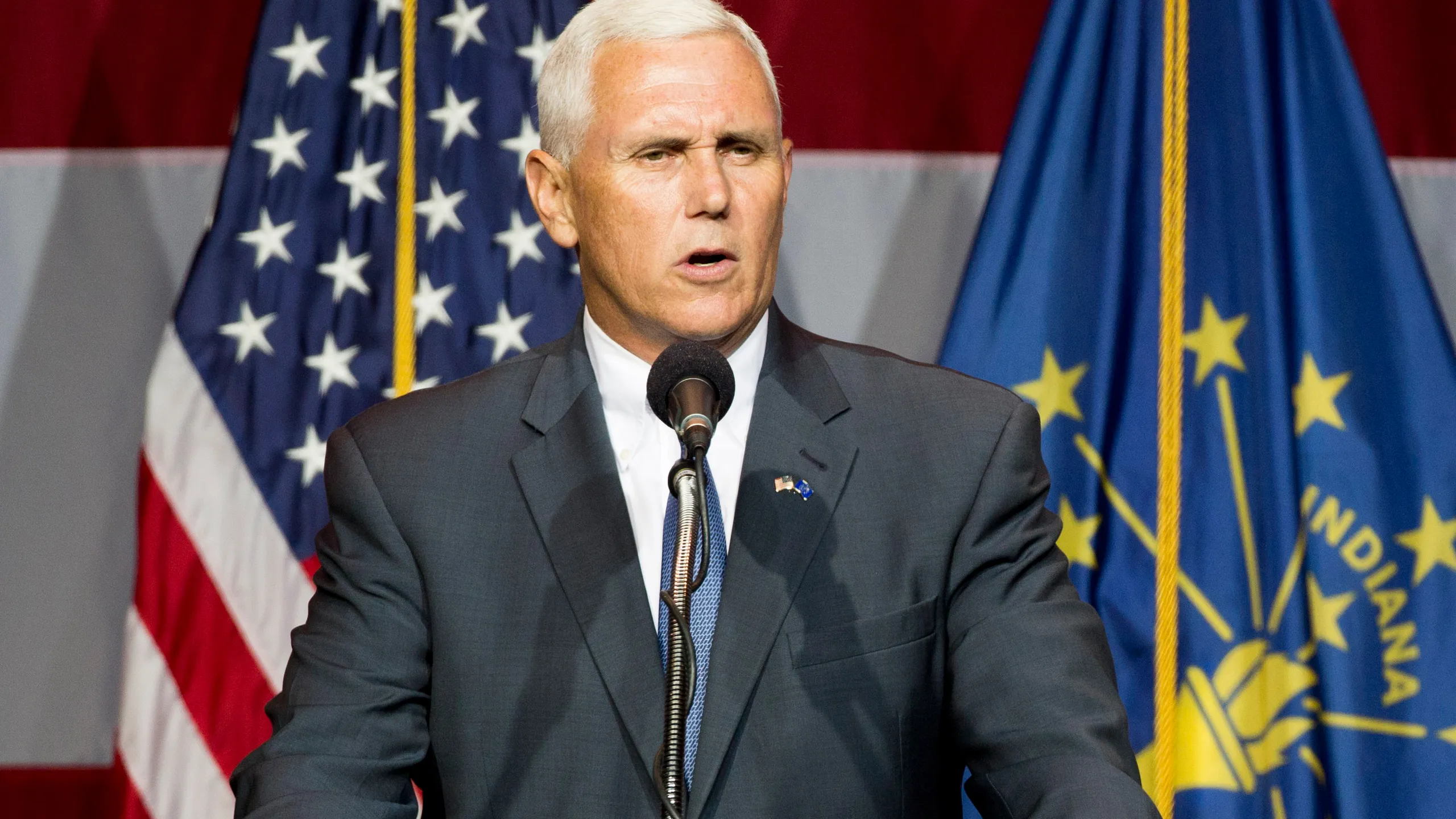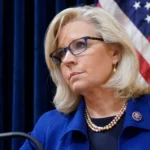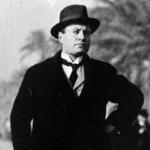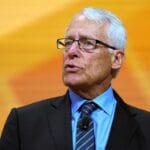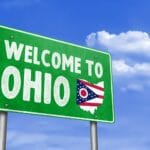Mike Pence, a prominent figure in American politics, is known for his unwavering conservative stance and the significant role he played as the 48th Vice President. From his Midwestern upbringing to his impactful presence on the national stage, Pence’s journey offers a glimpse into the complex dynamics of faith, politics, and leadership in the United States. This exploration delves into the life and career of Mike Pence, examining his political beliefs, his actions as Vice President, and his potential future endeavors.
Facts about Mike Pence
Born in 1959 in Columbus, Indiana, Pence’s path has been marked by a steadfast commitment to conservative values. His foray into politics began in 2001 when he became a Congressman for Indiana’s 2nd district, a position he held until 2013. During his time in Congress, Pence was known for his articulate defense of conservative ideals and his active role in shaping the Republican Party’s message.
His political trajectory took a significant turn in 2013 when he was elected Governor of Indiana. As Governor, Pence focused on enacting conservative policies, prioritizing job creation, tax reform, and education reform. His time in Indiana further solidified his reputation as a staunch conservative, drawing both praise and criticism for his unwavering stance on issues such as abortion and religious freedom.
In 2017, Pence stepped onto the national stage once again when he became Vice President under Donald Trump. As Vice President, Pence became a loyal and steadfast supporter of Trump’s policies. His unwavering allegiance to the President, particularly during moments of intense scrutiny and controversy, cemented his image as a dedicated and reliable political partner. Pence played an active role in shaping policy, particularly in areas like space exploration and tax reform, leaving his mark on the Trump administration’s legacy.
Who is Mike Pence: Early Life and Career?
To understand Mike Pence’s political trajectory, it’s essential to examine his formative years and the experiences that shaped his worldview. Raised in an Irish Catholic family in Columbus, Indiana, Pence developed a strong sense of faith from a young age. This faith, which later evolved into a more conservative evangelical perspective, has remained a driving force throughout his personal and political life.
Pence’s interest in politics emerged early on, possibly influenced by his admiration for President John F. Kennedy. This early interest, coupled with his strong religious background, suggests the complex interplay of influences that would shape his political identity.
His path to political office wasn’t linear. Pence experienced setbacks in his early campaigns for Congress, losing races in both 1988 and 1990. These early defeats may have contributed to his later stance against negative campaigning, which he believed had a detrimental effect on political discourse.
Before his election to Congress in 2000, Pence hosted a radio talk show from 1991 to 1993. This experience proved pivotal in solidifying his public persona as a conservative voice. It was during these years on the airwaves that he honed his communication skills and began to cultivate a following drawn to his articulate defense of conservative principles.
Pence’s election as Governor of Indiana in 2012 marked a turning point in his political career. Now responsible for leading a state, his policy decisions on issues like abortion and religious freedom ignited both praise and controversy. It was during this period that Pence became a nationally recognized figure, known for his unwavering commitment to conservative values and his willingness to enact legislation that reflected those values.
Looking Back:
- Pence’s journey showcases how seemingly disparate influences, such as his Catholic upbringing and his admiration for JFK, can contribute to the formation of a complex political identity.
- His early setbacks in congressional races may have shaped his views on campaigning and the importance of positive political engagement.
- The years he spent as a radio talk show host were crucial in developing his voice and connecting with an audience that resonated with his conservative message.
Mike Pence’s Political Beliefs: What Does He Stand For?
Mike Pence’s political ideology is deeply rooted in his conservative evangelical beliefs, which have profoundly shaped his stance on a range of social and political issues. These beliefs are central to understanding his policy decisions and his approach to governance.
A Look at Pence’s Stance on Abortion and Related Issues
Pence is a staunch opponent of abortion and has consistently advocated for policies that restrict access to abortion services. He has been a vocal supporter of defunding Planned Parenthood, an organization that provides abortion services among its range of healthcare options.
His commitment to reducing abortions extends beyond legal limitations. Pence is a proponent of abstinence-only sex education, suggesting that teaching young people to refrain from sexual activity is the most effective way to prevent unintended pregnancies and sexually transmitted infections (STIs). This perspective has put him at odds with advocates for comprehensive sex education who believe that teenagers should have access to accurate information about contraception to make informed choices about their sexual health.
Pence’s conservative views also influence his position on stem cell research. He opposes embryonic stem cell research on moral grounds because it often involves the destruction of human embryos. He instead advocates for alternative research methods that do not rely on the use of embryos.
While Pence’s opposition to abortion is unequivocal, the extent to which he supports criminalizing the procedure remains unclear. This question continues to be a point of contention and one that Pence has not explicitly addressed.
Social Issues: Pence’s Views on Race, Policing, and More
Pence’s conservative stance extends to a range of social issues, including race and policing. In response to the Black Lives Matter movement, which calls attention to systemic racism and police brutality, Pence has emphasized that “all lives matter.” This statement has been interpreted by some as a dismissal of the legitimate concerns raised by the movement and a reluctance to acknowledge the unique challenges faced by Black communities.
Pence’s alignment with law enforcement is evident in his opposition to the movement to defund the police. He believes that police officers play a crucial role in upholding law and order and ensuring the safety of communities.
How Faith Influences Politics: The Case of Mike Pence
To truly comprehend Mike Pence’s political positions, it’s crucial to understand the significant influence of his religious faith. As an evangelical Christian, Pence’s beliefs inform his views on a range of policy matters. His unwavering opposition to abortion and embryonic stem cell research stems from his belief in the sanctity of life, a principle deeply rooted in his evangelical worldview.
This faith-based perspective also extends to social policy. Pence has been a vocal opponent of same-sex marriage, advocating for the traditional definition of marriage as a union between one man and one woman. He has also been a staunch supporter of religious freedom legislation, arguing that individuals and religious institutions should have the right to act in accordance with their beliefs without undue government interference.
Conclusion: Understanding Mike Pence’s Political Compass
Mike Pence is a politician whose beliefs and actions are deeply intertwined with his conservative principles. His positions on issues like abortion, same-sex marriage, and the role of religion in public life have made him a significant figure in contemporary American politics. Whether one agrees with his views or not, his impact on the political landscape is undeniable.
Mike Pence as Vice President: Key Moments and Actions
Mike Pence’s tenure as Vice President was marked by his steadfast loyalty to President Trump and his active involvement in shaping key policy initiatives.
One notable aspect of Pence’s time as Vice President was his influence on staffing decisions. Pence brought several individuals from his home state of Indiana into the federal government, including Jerome Adams, who served as Surgeon General, and Alex Azar, who headed the Department of Health and Human Services. These appointments suggest that Pence sought to surround himself with trusted allies and like-minded individuals who shared his conservative ideology.
Pence also played a key role in reviving the National Space Council, demonstrating his interest in advancing America’s space exploration efforts. He championed increased funding for the Space Force, a new branch of the military focused on space operations, signaling his belief in the strategic importance of space dominance.
Throughout his time in office, Pence remained a steadfast defender of President Trump, even during periods of intense scrutiny and controversy, including the House impeachment proceedings. Pence’s unwavering loyalty to the President solidified his image as a reliable and dedicated partner, further cementing his place in the annals of American political history.
Interestingly, Pence took the unusual step of forming a political action committee (PAC) called the Great America Committee during his first term as Vice President. While it’s not uncommon for Vice Presidents to support their party’s fundraising efforts, the creation of a PAC so early in a term suggested a potential interest in seeking higher office in the future.
Key Takeaways (and some things to ponder):
- Pence’s role as Vice President went beyond that of a symbolic figurehead. He actively participated in shaping the administration’s agenda, influencing staffing decisions, and championing specific policy initiatives.
- The close working relationship between Pence and President Trump remains a subject of much analysis and speculation.
- The formation of the Great America Committee provides a glimpse into Pence’s potential political aspirations beyond his time as Vice President.
Mike Pence’s Religious Beliefs: How Have They Shaped His Politics?
Key Takeaways:
- Pence’s devout Christian faith, specifically his conservative evangelical beliefs, has been a cornerstone of his life and his political career.
- His unwavering stance against abortion and his support for pro-life policies are deeply rooted in his evangelical worldview.
- His strong support for Israel aligns with perspectives often held within the evangelical community.
Mike Pence’s journey into the world of politics is inextricably linked to his faith. His conversion to evangelical Christianity, an experience he has described as transformative, had a profound impact on his personal and political trajectory. This shift coincided with a move away from his earlier Democratic leanings toward a closer alignment with the Republican Party, where his values found greater resonance.
Putting Faith into Practice: How Pence’s Beliefs Play Out in the Political Arena
Pence’s faith is not merely a private matter; it is a driving force in his political decision-making. His unwavering support for pro-life policies, including his opposition to abortion and embryonic stem cell research, stems from his belief in the sanctity of life, a principle deeply cherished within the evangelical community.
His approach to social policy is also guided by his faith. For example, Pence is a vocal supporter of Israel, viewing this support not only as a matter of foreign policy but also as a fulfillment of biblical prophecy—a perspective shared by many within the evangelical community.
However, Pence’s blend of faith and politics has generated controversy. The “religious freedom” law he signed as governor of Indiana was met with fierce opposition from those who argued that it could be used to discriminate against LGBTQ+ individuals. This controversy highlighted the tension that can arise when deeply held religious beliefs influence public policy in a pluralistic society. Similarly, his stance on refugee resettlement, an issue often intertwined with faith-based initiatives, led to disagreements with the Catholic Archdiocese of Indianapolis.
The Bigger Picture: Faith and Politics
Mike Pence’s story stands as a compelling example of how religious beliefs can profoundly shape a political leader’s journey and approach to governance. His brand of Christian conservatism, particularly his evangelical beliefs, has undeniably influenced his stance on a range of complex topics. While his views have resonated with particular segments of society, they have also sparked debate and controversy, revealing the intricate relationship between faith, politics, and the formation of public policy in a diverse and constantly evolving nation.
What’s Next for Mike Pence: Future Plans and Legacy?
As Mike Pence navigates the post-Trump political landscape, several possibilities and questions emerge. He may choose to leverage his experience and connections to promote a particular vision within the Republican Party or pursue other endeavors that align with his conservative values.
Pence’s future will likely involve navigating the complexities of a Republican Party that is still grappling with its identity in the wake of the Trump presidency. He has spoken of his “Freedom Agenda”—a platform that blends traditional Republican economic policies with a clear rejection of the more extreme elements that have emerged within the party.
His “Freedom Agenda” emphasizes conservative priorities such as school choice, deregulation, tax cuts, and a tough stance on China. It remains to be seen how Pence will reconcile his conservative principles with the evolving political landscape and the potential for a Republican Party that may be moving in a different direction. His ability to adapt to these shifts while appealing to a broad range of voters could determine his future success.
The specter of Donald Trump continues to loom large over the Republican Party, and Pence’s association with the former president could be both an asset and a liability. While he maintains strong support among religious conservatives who were a significant part of Trump’s base, he may face challenges appealing to moderate voters who were turned off by Trump’s rhetoric and governing style.
Here are some key questions to consider about Pence’s future:
- How will he navigate the evolving Republican Party? Will he embrace a more traditional form of conservatism or align himself with the populist and nationalist sentiments that have gained traction in recent years?
- What role will his religious beliefs continue to play? Will he become a more vocal advocate for social conservative causes, or will he adopt a more pragmatic approach to broaden his appeal?
- Will he seek higher office again? If so, how will he distance himself from the more controversial aspects of the Trump presidency while still appealing to Trump’s base?
The answers to these questions will likely unfold in the months and years to come, shaping not only Mike Pence’s legacy but also the future trajectory of American conservatism.
Some interesting facts about retired Welsh footballer facts about Ian Rush Ian Rush are just a click away!
- For those interested in history, we have compiled some fascinating facts about William Manchester that you’ve probably never encountered before.
- Get ready to be amazed by these facts about Curt Hennig, a true icon in the world of professional wrestling!
